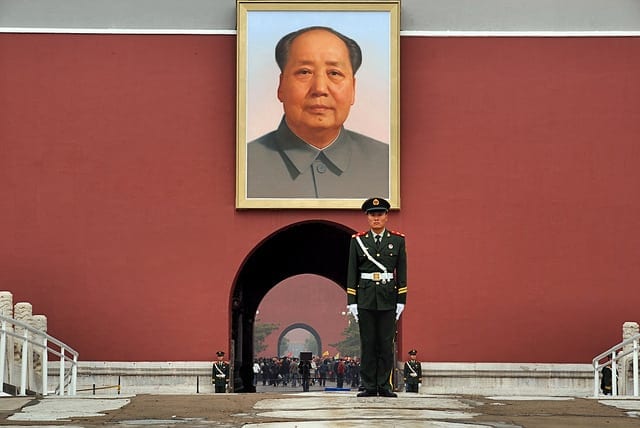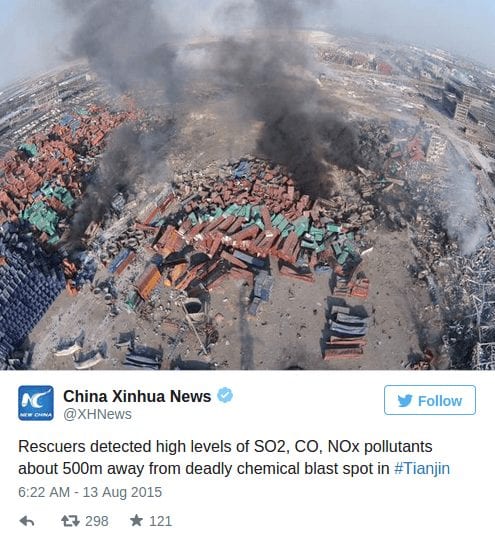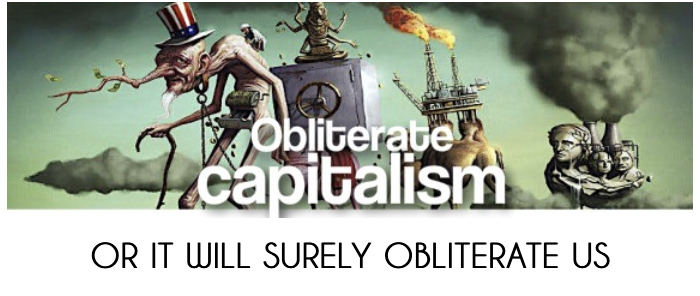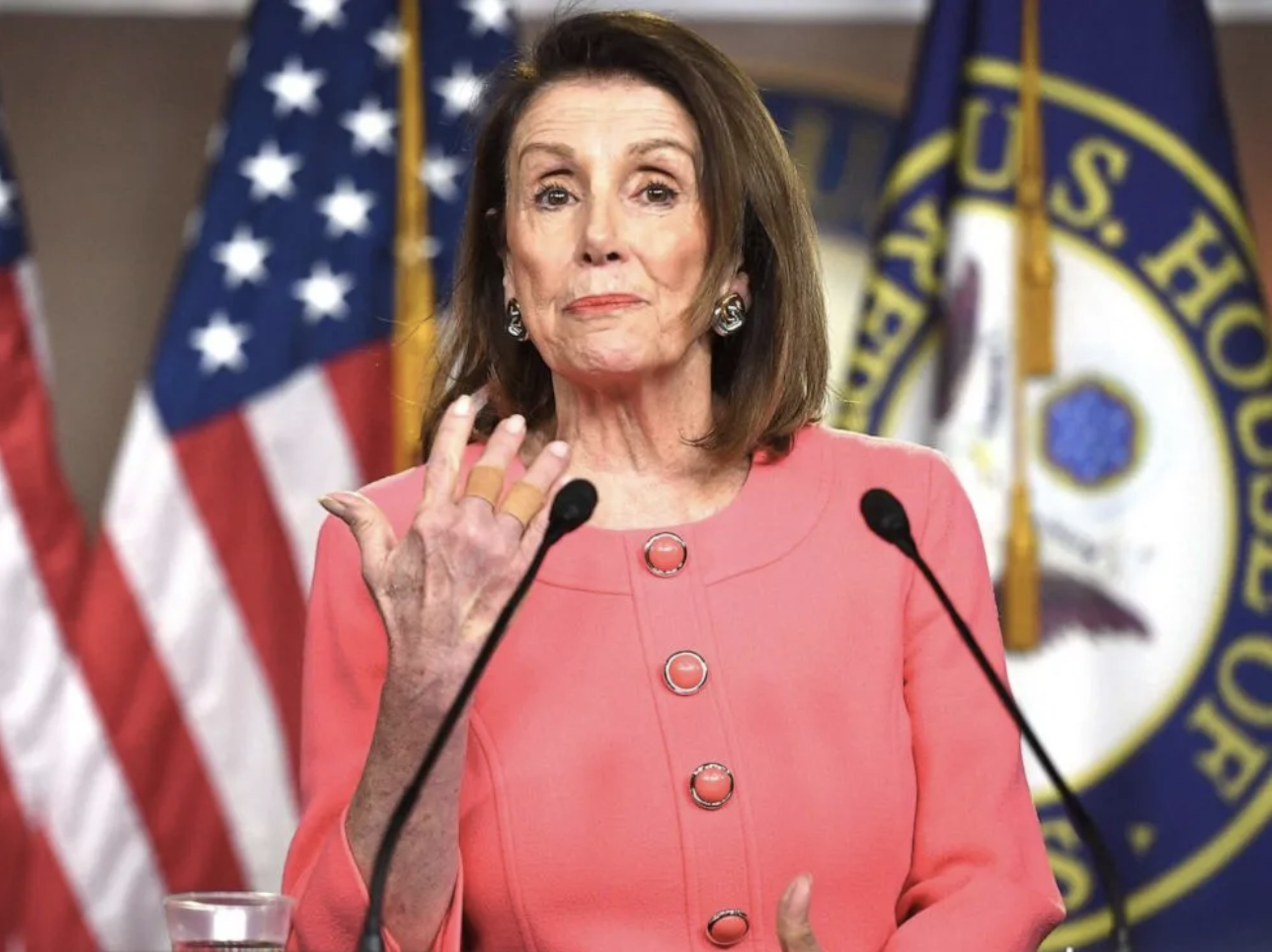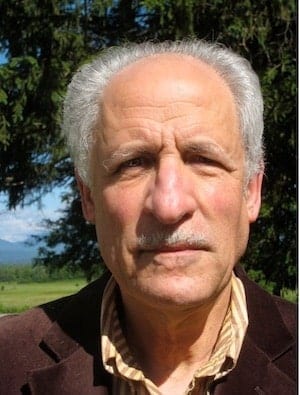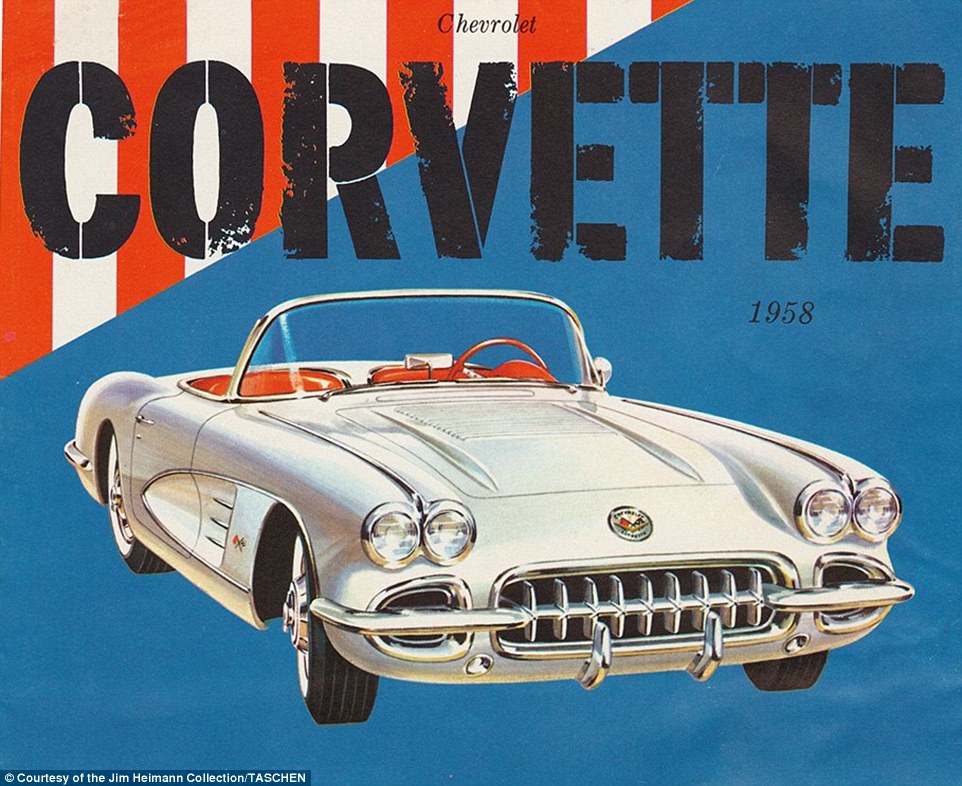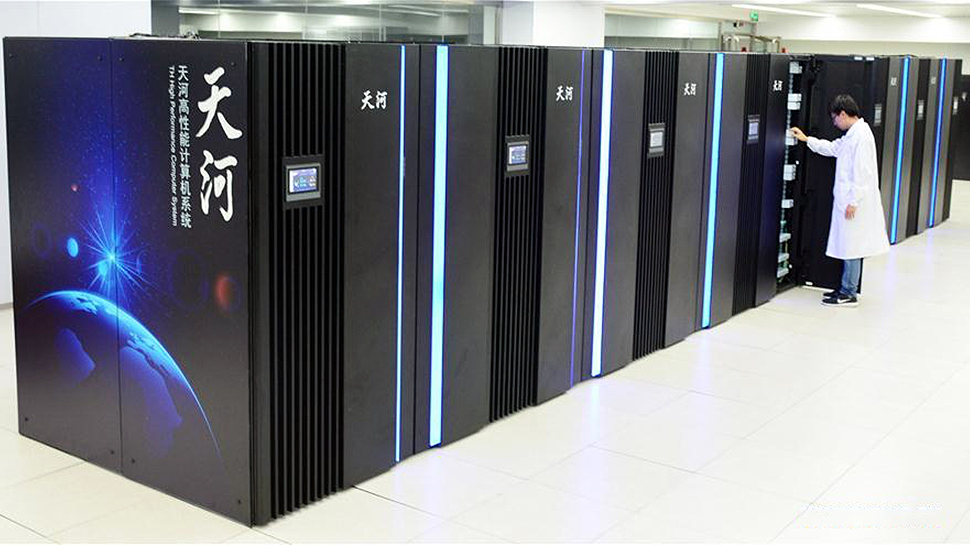The Myth of Chinese Capitalism
TODAY'S TOPIC: The Myth of Chinese Capitalism One of the great fabrications of Western mainstream media, among academics and on Wall Street is that China, starting in 1978 with Deng Xiaoping’s economic reforms, became a capitalist country. The favorite Western shibboleth bandied about is that, China’s authoritarian regime (it’s almost never called a government) runs a system of state capitalism. This is said with a genuflecting air of superiority and righteous consternation because it’s not quite copacetic; it smells like warmed-over chop suey. State capitalism is supposed to mean that China’s leaders, whom I collectively call Baba Beijing, map out grand national plans and mandate to China’s businesses what they are to do and not to do, whether they like it or not, markets be damned, and tax incentives and subsidies are offered to push them in the desired direction. This so called state capitalism is considered to be inherently unfair, since Western capitalism mythically only responds to the needs of “free markets” and the “free movement” of capital, investments and goods across our Planet, in search of profits. The self-reassuring message is that China is fully in fold of Western capitalism, except Baba Beijing plays dirty, using its own set of rules. Keeping it in the rubric of capitalism justifies why China has become, in just one generation, the world’s largest economy in purchasing power parity (PPP), eclipsing the United States for the first time since 1872, when America’s rapidly expanding colonial empire overtook China’s centuries-held #1 position. During the last generation, China has become the world’s #1 manufacturer, exporter and cross border trader, as well as Planet Earth’s largest creditor. During this time span, Baba Beijing’s policies have created the world’s largest and still fastest growing middle class, bringing a materialistic lifestyle to 1.3 billion citizens. This superficial image of the Chinese buying Stuff and Fluff, just like super-consuming Westerners, further gives outsiders the impression that China is just a copycat, eastern version of crass Americana. Nothing of all this could be further from the truth. In 1949, China gained its liberation from Western and Japanese imperial subjugation and became history’s most successful socialist and communist country. From 1949-1978, the Mao Era, China’s GDP grew an average of 7% per annum. Mao sincerely wanted the Chinese to get rich, just that all that wealth must be distributed as equally as possible. This is reflected in China’s 1978 GINI coefficient being a very egalitarian 0.16. A GINI coefficient of zero means that all the income is evenly distributed to all citizens and a coefficient of one means one person has all the income and everybody else has nothing. As a comparison, Sweden’s is currently 0.25, the lowest in the world, China’s is 0.37, the US’s is 0.41 and for all of humanity, 0.65. https://en.wikipedia.org/wiki/Gini_coefficient Billboard tribute to Deng Xiao ping (Shenzhen, China on a busy Saturday afternoon, Jan. 2010). The display reads: "Uphold the Party’s Fundamental Policies – Don’t Waver for One Hundred Years." During this same time frame, 1949-1978, the United States garnered 8% annual growth, just one percent more than the communist-socialist model. Given that the United States and its NATO supplicants successfully shut out China from international finance, investment and trade, until the mid-70s, the Mao Era economic statistics are truly remarkable. With the advent of Deng Xiaoping’s reforms and opening up China’s economy to do battle with Western capitalism (the Deng Era, 1979-2012), China’s economy has grown an average of 10% per annum, while America’s growth averaged 6%. A not-well-known point of history is that many of Deng’s reforms were actually started by Mao, Deng and Zhou Enlai, going back into the 70s and 60s, which helps explain the Mao Era’s phenomenal socioeconomic achievements. These earlier reforms were cleverly rebranded as “new” by Deng. Western capitalists eagerly lapped it up, in their lustful pursuit of Chinese profits, starting in 1978. Far left is Deng Xiaoping; to right is Zhou Enlai and center stage is Mao Zedong. Many of Deng’s much ballyhooed socioeconomic reforms were actually begun by these three titans of Chinese communism, starting in the 1960s. (Image by baidu.com) One of the greatest head fakes in geopolitical history: Deng Xiaoping giving eager Western capitalists the impression that China’s economic reforms would mean selling off state owned assets, preferably at fire sale prices. Pictured here is Deng on the left, absorbing Mao Zedong Thought from New China’s founder, the Chairman himself. (Image by baidu.com) China’s amazing socio-economic success story during the Mao Era has been completely expunged behind the Great Western Firewall. https://www.greanvillepost.com/2015/06/16/radio-sinoland-mao-zedong-ow-or-wow-2015-5-1/ For Western colonialism, it must not become common currency that a once poor, technologically repressed country of China’s size, any size for that matter (think Cuba or Eritrea), can succeed economically and socially, under the banner of socialism and communism. It is for this reason that there is a relentless foghorn of Western propaganda to discredit any and all gains made by non-capitalist countries. The West’s owners surely don’t want free thinking people and their leaders in Africa, the Americas and Asia to get any radical ideas. These imperial lies have continued into the Deng Era. China is still a communist and socialist country. Baba Beijing has simply used the West’s methods, markets, investment and technology to continue to advance the wellbeing of China’s people, within its non-capitalist economy. This is hard for most Westerners to wrap their heads around, that China has been and continues to be a communist and socialist country, till now, 2015, and will continue to be so as long as Baba Beijing is in power. This explains why the West has been relentlessly trying to overthrow the Communist Party of China (CPC), since liberation in 1949. Like the United States, Russia and France, the People’s Republic of China was founded and hewn from revolution. China’s long history and vision for the future are clearly spelled out in its constitution. The most recent version is from 1982, when Deng Xiaoping was China’s paramount leader. Here is an excerpt from the constitution’s preamble, http://en.people.cn/constitution/constitution.html After the founding of the People's Republic, the transition of Chinese society from a new- democratic [Editor’s note: China’s first republican period, with Sun Yat-Sen, 1912-1949] to a socialist society was effected step by step. The socialist transformation of the private ownership of the means of production was completed, the system of exploitation of man by man eliminated and the socialist system established. The people's democratic dictatorship led by the working class and based on the alliance of workers and peasants, which is in essence the dictatorship of the proletariat, has been consolidated and developed. The Chinese people and the Chinese People's Liberation Army have thwarted aggression, sabotage and armed provocations by imperialists and hegemonists, safeguarded China's national independence and security and strengthened its national defense. Major successes have been achieved in economic development. An independent and fairly comprehensive socialist system of industry has in the main been established. There has been a marked increase in agricultural production. Significant progress has been made in educational, scientific, cultural and other undertakings, and socialist ideological education has yielded noteworthy results. The living standards of the people have improved considerably. Both the victory of China's new-democratic revolution and the successes of its socialist cause have been achieved by the Chinese people of all nationalities under the leadership of the Communist Party of China and the guidance of Marxism-Leninism and Mao Zedong Thought, and by upholding truth, correcting errors and overcoming numerous difficulties and hardships. The basic task of the nation in the years to come is to concentrate its effort on socialist modernization. Under the leadership of the Communist Party of China and the guidance of Marxism- Leninism and Mao Zedong Thought, the Chinese people of all nationalities will continue to adhere to the people's democratic dictatorship and follow the socialist road, steadily improve socialist institutions, develop socialist democracy, improve the socialist legal system and work hard and self-reliantly to modernize industry, agriculture, national defense and science and technology step by step to turn China into a socialist country with a high level of culture and democracy. The exploiting classes as such have been eliminated in our country. However, class struggle will continue to exist within certain limits for a long time to come. The Chinese people must fight against those forces and elements, both at home and abroad, that are hostile to China's socialist system and try to undermine it. One of China's fast trains. The nation's infrastructure is being rapidly modernized, while in most of the West, especially in America, the ruling private sector neglects public works and investments that benefit the masses. China’s constitution clearly states that the Chinese people will govern themselves via their people’s democratic dictatorship. This dictatorship will guarantee the integrity of the People's Republic of China as a socialist state. This simply means that China’s citizens invest in the CPC to represent them and act on their behalf. Among the Chinese, this faith in their central government to do the right thing, and protect the citizens, their livelihoods and the country’s borders, is called the Heavenly Mandate. The Heavenly Mandate is a unique, sociopolitical concept that includes all previous emperors and dynasties, going back 5,000 years. The Heavenly Mandate stipulates that if the current Baba Beijing does not take care of the people’s business, it will be replaced with a new one. The other key philosophy stated in China’s constitution is that the CPC is authorized to use dictatorial powers to vanquish any anti-revolutionary imperialists and hegemonists (Westerners) and fight the exploiting classes (meaning capitalists), both inside China (fifth column compradors) and outside China (Western empire), who are all trying to overthrow the CPC (via Western international institutions, NGOs and internal and external psyops/blackops subversion). This unique, overriding sociopolitical, communist-socialist mandate is still true today, in spite of the Deng Era reforms. There is widespread, willful propaganda behind the Great Western Firewall to deny this anti-capitalist reality. Deng was a wily, masterful politician and charmer, and his diminutive body size disarmed his Western opponents, making them feel over-confident. He told them exactly what they wanted to hear and the Western empire began sharpening its knives, waiting to carve up and exploit China, just like it did for 110 years, from the 1840s’ Opium Wars until liberation in 1949. This period is known to the Chinese as the century of humiliation. But the real truth of Baba Beijing’s intentions was expressed by Deng, in 1982 that, Chairman Mao did very good things. Many times he saved the Party and the state from crisis. Without him the Chinese people would, at the very least, have spent much more time groping in the dark. Chairman Mao’s greatest contribution was that he applied the principles of Marxism-Leninism to the concrete practice of the Chinese revolution, pointing the way to victory. It should be said that before the sixties or the late fifties many of his ideas brought us victories, and the fundamental principles he advanced were quite correct. He creatively applied Marxism-Leninism to every aspect of the Chinese revolution, and he had creative views on philosophy, political science, military science, literature and art, and so on… We won great victories for the revolution precisely because we adhered to Mao Zedong Thought… We will reaffirm that his contributions are primary and his mistakes secondary. We will adopt a realistic approach towards the mistakes he made late in life. We will continue to adhere to Mao Zedong Thought, which represents the correct part of Chairman Mao’s life. Not only did Mao Zedong Thought lead us to victory in the revolution in the past; it is — and will continue to be — a treasured possession of the Chinese Communist Party and of our country. That is why we will forever keep Chairman Mao’s portrait on Tiananmen Gate as a symbol of our country, and we will always remember him as a founder of our Party and state. Moreover, we will adhere to Mao Zedong Thought. We will not do to Chairman Mao what Khrushchev did to Stalin. Best as I can tell, there is not much market-oriented liberalism to tease out of Deng’s statement. The world has now entered China’s third great modern era, President Xi Jinping’s, starting in 2013. Xi did not get a PhD in Marxism-Leninism, upon which is based on Mao Zedong Thought, for nothing. He is mobilizing China’s people with his highly popular Chinese Dream, to achieve a moderately prosperous, socialist society, thereby rejecting mindless consumption. This is the antithesis of America’s gluttonous, greedy, self-centered me-ism. The Chinese Dream also fully encompasses the goal of living in a clean and safe environment. Xi knows that all these capitalist adoptions in China have badly degraded the air, soil and water, as well as making it the world’s poster child for unsafe work conditions, as the Tianjin port explosion and numerous mining accidents can attest. Poll after poll shows that the people’s democratic dictatorship is clamoring for Green, Clean and Safe. If Baba Beijing does not address its citizens’ demands, it could quickly lose the Heavenly Mandate. Baba Beijing will undoubtedly use the Tianjin port disaster as an administrative cudgel to push through more costly and stringent workplace safety legislation. The owners of the port storage company, Ruihai International Logistics, will surely face capital punishment or spend the rest of their lives behind bars. The fact that Ruihai is not a government owned company also gives Baba Beijing a powerful bully pulpit to tout the benefits of state owned enterprises, and they may use this tragedy to forcefully buy out privately held companies that are working in high risk fields. A big sign that China is still communist-socialist is that Baba Beijing is going in the opposite direction of Western colonialism, by rolling out a massive, nationwide social security and retirement program for anyone living here, even foreigners, if they pay payroll taxes. This ambitious initiative also includes universal health care for everyone, especially children, the elderly and infirm. Meanwhile, the West is working furiously to dismantle its social and medical programs, or at the very least, making them much more expensive for its citizens, as well as looting many billions of dollars and euros from pension funds. Xi Jinping and the CPC are also fully committed to bringing China’s 90 million poorest citizens out of extreme poverty, by 2030. This, while the West can’t defund and cancel fast enough what’s left of its sundered safety nets, for society’s most vulnerable. Xi is one of the world’s most powerful leaders. Yet, he regularly underscores this government mandate to the press and the people, even traveling to pockets of severe poverty, to drive home the point. The last US president who openly talked about poverty was Lyndon Johnson, and that was 50 years ago. As a country founded on communism and socialism, I’ve never heard a Chinese citizen complain about the less privileged taking what they should rightfully keep as “their own”. The idea that China’s worst off are economic leeches sucking off “hard working citizens” is unimaginable and repugnant here. China is still very much communist, because every square meter of this country is owned collectively by the Chinese people, via the state. No one can buy the dirt under any piece of property. All one can do is have a long term lease, which by legislation, cannot exceed 70 years. For foreign businesses, this is quite acceptable, since there are very few capital investments, if any, that are not fully depreciated off the books in less than 50 years, most in 5-20 years. Anybody on Planet Earth can invest in China’s real estate, but if you wish to keep it longer than 70 years, you will have to renew your lease contract and pay its going market value, to do so. This is what China’s constitution means that, “The socialist transformation of the private ownership of the means of production was completed”, meaning the entire country’s landmass was nationalized. Baba Beijing is continuing to try different ways of making the country’s land more productive, via creative laws and regulations, but it is still all collectively owned, every square millimeter. The fact that China’s lands are collectively owned is suppressed behind the Great Western Firewall, because it is inconvenient that such an incredible, communist-socialist economic success story, is a proven fact. Only “private ownership” can assure the happiness and wellbeing of the people, or so goes the myth of Western capitalism, as peddled by Adam Smith and Francis Bacon. In reality, Smith and Bacon were only concerned with the prerogatives of the elite one percent. China’s state sector, meaning government-owned businesses, dominates the national economy, and its presence is being felt, more and more, across our Pale Blue Dot. There are 155,000 state-owned enterprises (SOEs) in China, in every imaginable sector and industry. Their book value is US$17.4 trillion, more than America’s annual GDP. Since the 1990s, China has been and continues to adopt capitalist practices to make its SOEs perform better and be more transparent. A number of them are selling a portion of their ownership to the public, by listing shares on Chinese stock markets, keeping the vast majority of ownership in government hands, usually up to a 70% government-30% stock split. This sort of shareholder accountability has improved the performance of China’s SOEs, which is Baba Beijing’s goal. Some of the bigger SOEs are splitting off sector-specific businesses and then selling minority stakes in them on the stock market, to allow these new entities to focus their specialized energies, compete on the national and world stage. Conversely, other SOEs are being consolidated to become planet conquering giants, in the energy, commodities, transportation, infrastructure and communication sectors. Thirdly, SOEs are spending billions of dollars and euros all over the world, buying outright or investing in stock traded companies, to add to their bottom line, ironically now making them government-owned under the SOE rubric. China’s people’s democratic dictatorship owns US$17.4 trillion in assets, more than the United States’ annual GDP. Not being able to plunder and pillage all these resources causes Western capitalists and the political leaders they own, to foam at the mouth with covetous rage. Image by baidu.com) The bigger they are, the more profitable they tend to be. On the capitalist sacred list, Fortune’s Global 500 Companies, http://fortune.com/global500/ China’s socialist behemoths are more and more competing head to head with the West’s most successful, stockholder corporations. In 2000, China only had 10 companies listed on this capitalist Holy Grail. By 2010, the count was up to 46 and this year, 99. Only 22 of these nearly 100 Chinese companies are majority shareholder owned. All the others are proudly flying the flag of China’s people’s democratic dictatorship. How profitable are China’s government owned corporations? Last year, China’s 12 biggest SOEs on the Global 500 list made a combined total profit of US$201 billion. http://fortune.com/2015/07/22/china-global-500-government-owned/ China’s democratic dictatorship owns the world’s largest petroleum company (SINOPEC- bigger than ExxonMobil, BP and Shell), the largest bank (ICBC- bigger than Citibank, HSBC and Bank of America), the largest utility business (State Grid- bigger than E.On and Eléctricité de France), the largest construction engineering firm (China State Construction Engineering- bigger than Bechtel and KBR), the largest railroad business (China Railway Engineering), the third largest telecomm outfit (China Telecommunications), the sixth biggest insurance group (China Life Insurance) and the tenth largest automobile manufacturer (SAIC). The Chinese people own four of the world’s Top Ten banks and two of the five largest petroleum concerns. In 2014, US$201 billion in profits came from China’s 12 biggest state owned enterprises. China’s communist-socialist economic model scares the hell out of Western empire, since it offers an attractive and successful alternative to the West’s 1%-99% capitalist system of colonial exploitation and resource extraction. (Image by FRS) The largest of these publicly owned SOEs are managed by the world’s wealthiest sovereign asset organization, China’s State Assets Supervision and Administration Commission (SASAC). SASAC answers directly to the highest levels in Baba Beijing’s hierarchy, the State Council, which is headed by China’s Premier, Li Keqiang (#2, behind Xi Jinping). He is imminently qualified, having earned a law degree and a PhD in economics. SASAC keeps tabs on what are considered strategic sectors, which include aerospace, airlines, aluminum, architecture & design, automotive, aviation, banking, chemicals, coal, cotton, electronics, engineering, forestry, heavy equipment, gold, grain, heavy machinery, intelligence services, iron, materials, metallurgy, mining, non-ferrous metals, nuclear energy, ocean shipping, oil, pharmaceuticals, postal services, rail, salt, science and technology research, ship building, silk, steel, telecoms, travel and utilities. Most of these sectors are state monopolies or nearly so. http://www.sasac.gov.cn/ Other sectors that are state monopolies or dominated by SOEs are airports, arms and weapons, banks, dams/hydroelectricity, insurance, ports, tobacco, solar and wind power and toll roads and bridges. The economic model that the West cannot bring itself to admit is truly succeeding. The hen on the left is state owned assets. China’s SOEs are represented by a successful boy, who is handing state income eggs to the country and its commonwealth: the people’s democratic dictatorship. (Image by cnsphoto.com). The Western empire’s utter denial and arrogance towards China’s communist-socialist economic model were embarrassingly revealed recently, by a World Bank China Assessment report. In it, a couple of graphs were presented, showing that China’s FIRE sectors (finance-insurance-real estate) are essentially state monopolies. This admonition was termed as an insulting threat to Baba Beijing, as if China’s leaders and people don’t know what’s best for them. It stated that if China does not reform its financial sector, whose Western definition means selling off all state owned FIRE assets to the West, then trouble could lie ahead. It also derisively commented that all this state control is “making [China] an outlier by international standards”. http://finance.ninemsn.com.au/newsbusiness/aap/9004661/world-bank-retracts-part-of-china-report Well, I should hope so, because China’s economy is communist-socialist, and not at all capitalist. This World Bank gaff of conceit was extirpated from the report a couple of weeks later, with the lame excuse that it had not been “adequately reviewed” before publication. The fact of the matter is, this was a classic Freudian slip, which accurately mirrors Western Empire’s true fears. Why? Because China’s economic performance has, since 1949, beaten the pants off of “unfettered, free market” America - by a long shot - and China’s superior communist-socialist model will increasingly outpace Western colonialism, as it slowly collapses into irrelevance. This is what truly frightens Western colonialism to the quick. With the advent of China’s communism-socialism rising up as an alternative to the West’s 1%-99% system of exploitation and resource extraction, imperial propaganda has been relentless in brainwashing its citizens, to deny this model’s existence and discredit its many successful examples around the world. Instead of America and the West being looked up to and admired as the model to adopt, China is rapidly taking center stage, to offer the world a different vision: revolutionary red communism-socialism. In fact, it is already happening. SOEs are popping up all across the world economy. In 2014, 23% of the Global 500 companies were SOEs, compared to only nine percent in 2005. This trend should continue into the 21st century, since China has shown that its economic model is clearly superior to Western colonialism. If Baba Beijing can bring the Chinese Dream to full fruition, by the stated goal of Year 2050, humanity just might have a chance to survive after all. The next time someone starts regurgitating Randian, Chicago School, jungle capitalism tripe, hit back with the facts in this article and share its link We owe it to future generatons to bring down the Great Western Firewall and speak truth to power. Going into the 21st century, the West’s colonial-imperial economic model is going to be seriously challenged by China’s model of communist-socialist state-owned enterprises (SOEs). (Image by infographic.com) JEFF J. BROWN, Special Correspondent, Beijing DEAR FRIENDS: Help us amplify the reach of our dispatches from Beijing by the uniquely qualified Jeff Brown. Be sure to share this article with friends, co-workers and kin, and note the following venues which are also carrying the reports: 44 Days Radio Sinoland on Sound Cloud: https://soundcloud.com/44-days 44 Days Radio Sinoland on Stitcher Radio: http://www.stitcher.com/podcast/44-days-publishing-jeff-j-brown/radio-sinoland?refid=stpr 44 Days Radio Sinoland on iTunes: https://itunes.apple.com/cn/podcast/44-days-radio-sinoland/id1018764065?l=en REPOSTERS NEEDED. APPLY HERE! Get back at the lying, criminal mainstream media and its masters by reposting the truth about world events. If you like what you read on The Greanville Post help us extend its circulation by reposting this or any other article on a Facebook page or group page you belong to. Send a mail to Margo Stiles, letting her know what pages or sites you intend to cover. We MUST rely on each other to get the word out! And remember: All captions and pullquotes are furnished by the editors, NOT the author(s).

Cross linked with 44 Days and SoundCloud
DATELINE: 8.15.15/ Rev. 8.20.15 ||| Reposted 8.30.22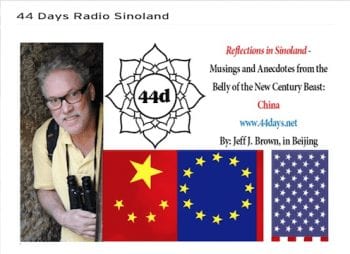

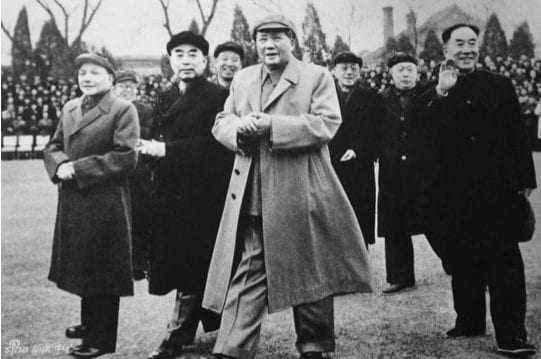
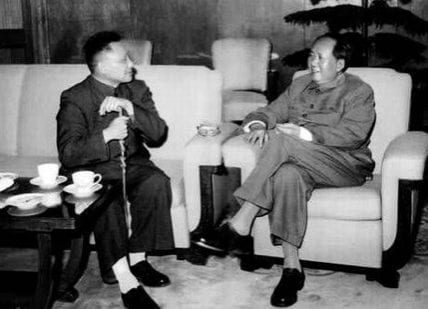
"Beijing is going in the opposite direction of Western colonialism, by rolling out a massive, nationwide social security and retirement program for anyone living here, even foreigners, if they pay payroll taxes...

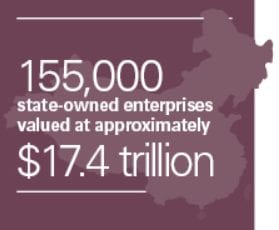
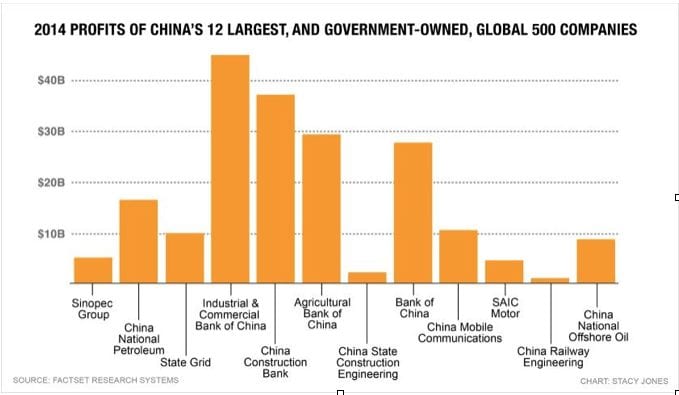

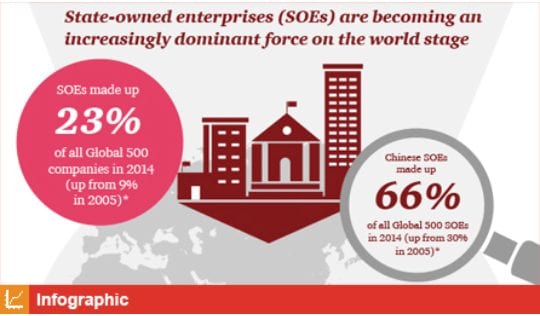
 Jeff J. Brown is the author of “44 Days Backpacking in China: The Middle Kingdom in the 21st Century, with the United States, Europe and the Fate of the World in Its Looking Glass” (2013), “Reflections in Sinoland – Musings and Anecdotes from the Belly of the New Century Beast” (2015), and “Doctor WriteRead’s Treasure Trove to Great English” (2015). He is currently writing an historical fiction, “Red Letters – The Diaries of Xi Jinping”, due out in 2016. He is a member of The Anthill, a collective of authors who write about China. Apart from his columns to The Greanville Post, he also submits articles on Oped News and Firedog Lake. His articles have been published by Paul Craig Roberts, The Saker, Ron Unz, Alternative News Network, Russophile, 15 Minute News, The Daily Coin, Hidden Harmonies and many other websites. He has been a guest on Press TV.
Jeff J. Brown is the author of “44 Days Backpacking in China: The Middle Kingdom in the 21st Century, with the United States, Europe and the Fate of the World in Its Looking Glass” (2013), “Reflections in Sinoland – Musings and Anecdotes from the Belly of the New Century Beast” (2015), and “Doctor WriteRead’s Treasure Trove to Great English” (2015). He is currently writing an historical fiction, “Red Letters – The Diaries of Xi Jinping”, due out in 2016. He is a member of The Anthill, a collective of authors who write about China. Apart from his columns to The Greanville Post, he also submits articles on Oped News and Firedog Lake. His articles have been published by Paul Craig Roberts, The Saker, Ron Unz, Alternative News Network, Russophile, 15 Minute News, The Daily Coin, Hidden Harmonies and many other websites. He has been a guest on Press TV.
![]()
